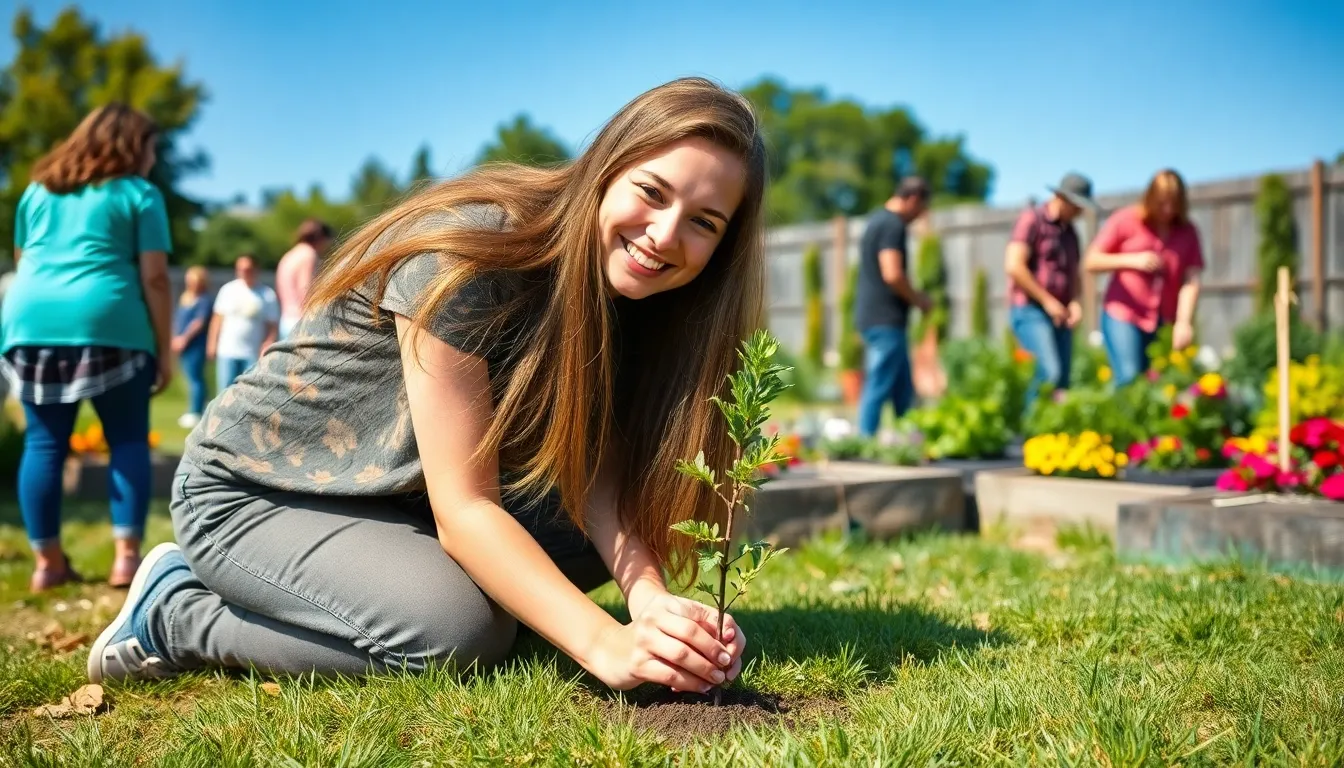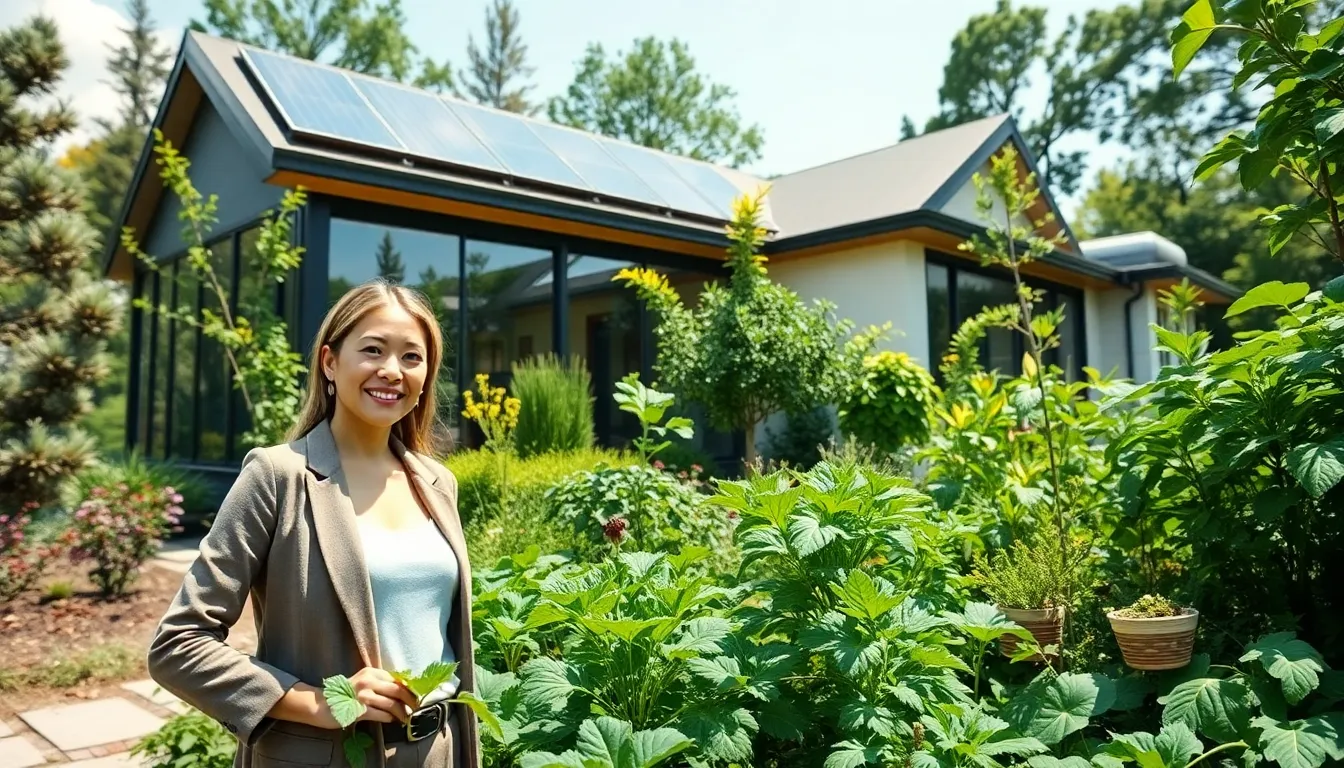In a world where plastic seems to multiply like rabbits and climate change is the new party crasher, conservation isn’t just a good idea—it’s a necessity. But don’t worry, saving the planet doesn’t mean giving up your favorite snacks or living in a treehouse. With a sprinkle of creativity and a dash of humor, anyone can become an eco-warrior without sacrificing comfort.
Table of Contents
ToggleImportance Of Conservation
Conservation plays a critical role in sustaining the planet’s resources for future generations. It addresses environmental challenges and supports economic stability.
Environmental Benefits
Reducing waste through conservation efforts aids in the protection of ecosystems. Clean air and water result from limiting pollution, which directly impacts health. Preserving biodiversity ensures balanced ecosystems where various species thrive. Sustainable practices, like recycling and energy conservation, help combat climate change by lowering greenhouse gas emissions. Protecting natural habitats also fosters resilience against environmental changes, contributing to a stable climate.
Economic Advantages
Conservation initiatives can stimulate job creation in various sectors. Renewable energy industries, such as solar and wind, increasingly offer stable employment opportunities. By investing in sustainable agriculture, communities benefit from healthier crops and reduced resource depletion. Conservation also leads to cost savings in waste management and resource use, making operations more efficient. Furthermore, eco-tourism generates revenue while promoting the appreciation of natural areas, boosting local economies.
Everyday Conservation Tips

Everyday actions can lead to significant changes in conservation efforts. Simple practices can save resources and protect the environment.
Reducing Water Consumption
Reducing water consumption starts with conscious habits. Fixing leaks in faucets, which can waste gallons daily, proves essential. Installing low-flow showerheads and toilets can cut water usage by up to 50%. Collecting rainwater for gardening serves as an effective method for conserving tap water. Turning off the tap while brushing teeth helps reduce unnecessary waste. Opting for shorter showers further contributes to efficient water use. Limiting lawn watering to early mornings prevents evaporation losses. Each small change contributes to a larger impact on local water resources.
Energy Saving Techniques
Energy-saving techniques present immediate benefits. Using energy-efficient appliances can cut energy use significantly. Regularly replacing incandescent bulbs with LED lights saves up to 75% on lighting costs. Adjusting thermostats by a few degrees can lead to reduced heating and cooling bills. Unplugging devices when not in use helps eliminate phantom energy consumption. Harnessing natural light instead of turning on lights during the day maximizes energy savings. Implementing these strategies can lead to a noticeable decrease in overall energy demand. These adjustments not only conserve resources but also lower monthly expenses.
Sustainable Practices
Embracing sustainable practices leads to meaningful conservation efforts. Individuals can contribute significantly by adopting responsible habits.
Recycling and Upcycling
Recycling reduces waste and conserves resources. Many items can transform through upcycling, giving them a new purpose. For example, glass jars become storage containers, while old t-shirts can turn into reusable bags. These actions minimize landfill contributions and cut down on the demand for new materials. Regularly participating in local recycling programs enhances community efforts and maximizes positive environmental impact.
Sustainable Transportation
Sustainable transportation options reduce carbon footprints. Walking or biking for short distances improves personal health and lowers emissions. Using public transit not only saves money but also decreases traffic congestion. Carpooling offers an effective way to share rides and energy costs. Electric and hybrid vehicles present eco-friendly alternatives for those in need of personal transport. Prioritizing these methods leads to cleaner air and enhances quality of life for everyone.
Community Involvement
Community involvement strengthens conservation efforts. Engaging with local initiatives fosters a collective responsibility toward the environment.
Volunteering for Local Projects
Participating in local conservation projects provides hands-on experience. Community gardens, beach cleanups, and tree-planting days all offer opportunities to make a difference. Volunteers can contribute time and skills while connecting with others who share similar values. Joining local environmental groups enhances awareness of ongoing initiatives and pushes for resource conservation. Many organizations focus on protecting local ecosystems, demonstrating commitment to sustainability.
Educating Others
Teaching others about conservation amplifies community impact. Workshops, school programs, and informational sessions raise awareness about environmental challenges. Individuals can share practical tips for reducing plastic waste and conserving water, encouraging friends and family to adopt eco-friendly habits. Social media offers an effective platform for spreading messages and resources. Highlighting the benefits of sustainable practices inspires collective action, creating a ripple effect throughout the community. Engaging discussions about conservation lead to increased participation and a deeper understanding of environmental issues.
Embracing conservation is a journey that anyone can embark on without sacrificing comfort. By adopting simple yet effective practices, individuals can significantly impact the environment while enjoying their daily lives.
Engaging with local initiatives and spreading awareness fosters a sense of community and shared responsibility. Each small action contributes to a larger movement that champions sustainability and protects the planet for future generations.
As people integrate these conservation tips into their routines, they not only enhance their own lives but also inspire others to join the cause. Together, they can create a healthier and more sustainable world.





